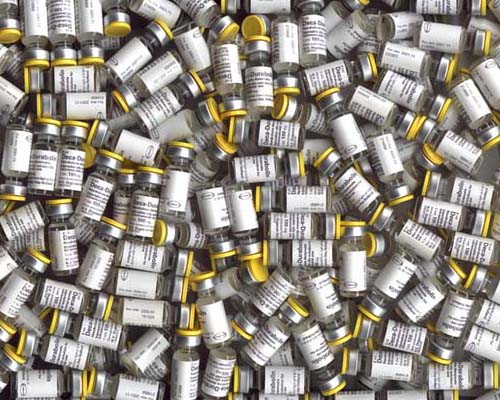In April 2008 the Wall Street Journal reported that steroid-induced muscle gains may be permanent. MESO-Rx identified the unnamed and unpublished research study belonging to Swedish researcher Anders Ericsson of the Umea University. Ericsson’s October 2006 doctoral thesis was entitled Strength training and anabolic steroids: a comparative study of the trapezius, a shoulder muscle and the vastus lateralis, a thigh muscle, of strength trained athletes.
Anders Ericsson will discuss his research and its implications at the American Physiological Society conference in Hilton Head, South Carolina this weekend (September 24-27, 2008).
Dr. Eriksson will discuss the team’s study, Anabolic Steroids Withdrawal in Strength Trained Athletes: How Does It Affect Skeletal Muscles?, at a conference sponsored by the American Physiological Society. The conference, The Integrative Biology of Exercise V, will be held September 24-27, 2008 in Hilton Head, SC.
The possibility that anabolics steroids could have permanent effects on muscular development and/or performance enhancement runs contrary to widely held belief that one loses all of the results gained from steroids once the drug is discontinued (“Steroids could give athletes an advantage, even years later,” September 25).
Into the roiling kettle of debate on anabolic steroids comes this news: The effects from anabolic steroids may linger even years after taking the stuff.
�
But we’re not talking about possible ill effects that are often cited, such as high cholesterol levels, liver damage, acne and high blood pressure. Researchers have recently discovered that athletes who once took steroids could reap a competitive advantage later on.
The permanent and/or long-lasting effects on muscle enhancement could be seen as a positive development for responsible short-term anabolic steroid use for physique enhancement purposes. What if individuals could have lifelong increased lean body mass resulting from a limited number of anabolic steroid cycles?
On the other hand, this could also upend the anti-doping penalties in place; what is the point of banning an athlete for 2 or 4 years if they are guilty of doping if they have acquired permanent performance enhancement as a result of a single doping violation?
About the author
Millard writes about anabolic steroids and performance enhancing drugs and their use and impact in sport and society. He discusses the medical and non-medical uses of anabolic-androgenic steroids while advocating a harm reduction approach to steroid education.


Leave a Reply
You must be logged in to post a comment.